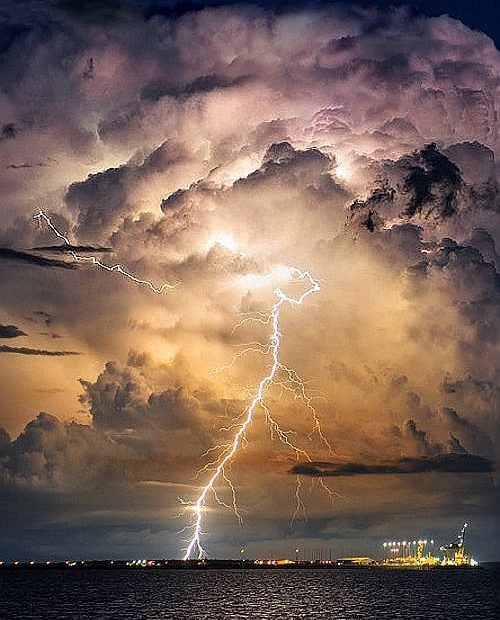Each year, thousands of homes and other properties are damaged or destroyed by lightning, and it is responsible for more deaths and property loss than tornadoes, hurricanes and floods combined. When severe weather strikes, is your family aware of the precautions and measures that should be taken to ensure their safety?
Lightning Prevention:
• Install a lightning protection system: With a lightning protection system, the destructive power of the lightning strike is directed safely into the ground, leaving the structure and its contents undamaged.
• Use surge arrestors: Surge arrestors protect against damaging electrical surges that can enter a structure via power transmission lines. By filtering and dissipating the harmful surges, arrestors prevent electrical fires and protect against electrical discharges.
• Unplug electronic equipment: Lightning can travel through electrical systems, so if you know a storm is approaching, unplug electronic equipment such TVs, game systems, computers, washer, dryers, etc.
Safety Tips:
• Go indoors: Remember the phrase, “When thunder roars, go indoors.” Take shelter in a home, large building or a fully enclosed building, preferably protected with a lightning protection system. If you are on the road or do not have access to the above, hard-topped vehicles are generally safe shelters.
• Avoid Water: Because lightning can travel through a building’s plumbing, do not bathe, shower, wash dishes or have any other contact with water during a thunderstorm.
• Stay Close to the ground: Do not lie down! If you are caught in an open area, crouch down in a ball-like position with your head tucked and hands over your ears. Lightning causes electric currents along the top of the ground that can be deadly over 100 feet away. Crouching down is the best combination of being low and touching the ground as little as possible.
• Avoid windows, porches and concrete: Do not lie on concrete floors during a thunderstorm, and avoid leaning against concrete walls. Lightning can travel though any metal wires or bars in concrete walls or flooring.
Coverage and Protection:
Damage caused by lightning, such as fire, is covered by standard homeowners or business policies (if you’re a business owner, click here to see our blog on preparing your business for disaster). Additionally, coverage is available under the comprehensive portion of an auto policy, if your vehicle is damaged by lightning.
If you have questions about your homeowners insurance policy, contact a Starke advisor, or complete one of our free, no obligation quote forms to find out more information.


